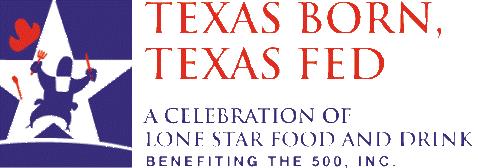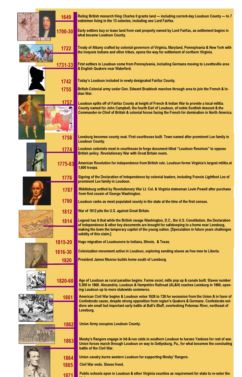| While it is true that writing for the media has numerous aspects to consider, it is also true that many of the skills and approaches in any given type of media writing has much in common with other types of media writing. For instance, take advertising copywriting. E.J. McCarthy standardized the discussion of the "4 Ps" upon which all advertisers rely in pitching their products:
|
There are other similarities, too. The informal approach of websites and some magazines is also needed in ad copy creation. The willingness to go deep in news writing often results in team coverage and that mirrors the group work that is common for creative ad campaigns.
These comparisons across the various types of media writing is reason enough to get to know all aspects of the information you will present. The talents you can discover as an ad copywriter can pay off in other media fields, too. These includes:
Good media writers are versatile
Having written both broadcast copy and ad copy, I have learned that while good writers can be good on at least an "average" level with any assignment, few if any are "excellent" at all types of writing. Most are "good" or "very good" at some types of writing and are mediocre or second-rate at others.
You probably are just such a writer, but the fact of having strengths in some areas and weaknesses in other areas should not discourage you. Instead, you should keep your options open so you can grow as a writer in all of the areas. And you should be wise to know that ultimately you should forego the lesser skills and focus on your greater skills.
Many of my efforts did achieve a sort of success for the product/service I was highlighting. Examples I could offer here are:
What I learned is what James Stovall in his book Writing for the Mass Media (2009) said best:
“Advertising is based on the assumption that words have the power to produce a change in thinking, attitudes, beliefs and ultimately behavior. Advertising that does not accomplish this change or aid in accomplishing it is worthless. Copy writers must select the words and ideas that will help to produce this change” (p. 239).
It’s all creative and informative writing
The work for The 500 Inc., an organization that supported all arts in Dallas, was perhaps my most well-received writing work for ad copy. A look at how that work evolved can perhaps show how a writer writes ad copy.
The 500 Inc. was an army of volunteers that create social events that generate money to support the arts. While I was serving as the organization’s PR Coordinator, the organization decided to try a brand-new event.
Dallas being a great restaurant city, the organization decided to host a “taste of Texas” event, inviting restaurants to set up booths and give away samples of their menu items. The general public would be charged admission and the proceeds after covering expenses would go to the non-profit organization.
Texans are proud of their Lone Star State, and so the event was schedule to coincide with the anniversary of the state’s birth.
With these things in mind, the leadership of the group put out the word to generate ideas to name the event. I reviewed the details of the event and thought about how to cover the details with a catchy title. Ideally the branding of the event would indicate that it was (1) coinciding with Texas’ birthday, and (2) that food would be offered.
Several irrelevant examples came to me. However, I thought creatively for several days, and was determined not to give up. Finally, I recalled the news that a well-known Dallas-based bakery had recently gone out of business after many decades of delivery bread to the city’s grocery stores. Their slogan – “Texas Born, Texas Bread” – was fair game now. Not only that, but the tagline had been deeply rooted in the minds of Dallasites for a few years because of an unofficial T-shirt slogan that tourists liked in the 1990s. The T-shirts read “Texas Born, Texas Bred … and When I Die, I’ll be Texas Dead.”
To me, the slogan had it all: uniquely Texan, memorable, and spoke of both “beginnings” and “food.”
It’s not my true gift to write a slogan for an event instead of a feature-length article, but when I suggested that they call the event “Texas Born, Texas Fed,” and they accepted the idea, I had suddenly crossed over into being a writer for advertising, too.
These comparisons across the various types of media writing is reason enough to get to know all aspects of the information you will present. The talents you can discover as an ad copywriter can pay off in other media fields, too. These includes:
- Bouncing ideas for packaging that info off of the stakeholders and people who make good decisions
- Thinking visually
- Striving for accuracy
- Being willing to shift gears, handle criticism and work as a team
- Producing your best work, given the circumstances and expectations
Good media writers are versatile
Having written both broadcast copy and ad copy, I have learned that while good writers can be good on at least an "average" level with any assignment, few if any are "excellent" at all types of writing. Most are "good" or "very good" at some types of writing and are mediocre or second-rate at others.
You probably are just such a writer, but the fact of having strengths in some areas and weaknesses in other areas should not discourage you. Instead, you should keep your options open so you can grow as a writer in all of the areas. And you should be wise to know that ultimately you should forego the lesser skills and focus on your greater skills.
Many of my efforts did achieve a sort of success for the product/service I was highlighting. Examples I could offer here are:
- National Council of Architectural Registration Boards – ad copy and social media efforts
- Chorus of the Old Dominion – brochures, postcards and copy for social media efforts
- The 500 Inc. – discussed below
- Metal Building Manufacturers Association – an HTML email encouraging numerous architectural and construction magazines and websites to run a public service ad
- Crossroads United Methodist Church – booklets, postcards, eNewsletters and bulletins
- Radio Shack – catalogs of products
- Buell Floors -- brochures
What I learned is what James Stovall in his book Writing for the Mass Media (2009) said best:
“Advertising is based on the assumption that words have the power to produce a change in thinking, attitudes, beliefs and ultimately behavior. Advertising that does not accomplish this change or aid in accomplishing it is worthless. Copy writers must select the words and ideas that will help to produce this change” (p. 239).
It’s all creative and informative writing
The work for The 500 Inc., an organization that supported all arts in Dallas, was perhaps my most well-received writing work for ad copy. A look at how that work evolved can perhaps show how a writer writes ad copy.
The 500 Inc. was an army of volunteers that create social events that generate money to support the arts. While I was serving as the organization’s PR Coordinator, the organization decided to try a brand-new event.
Dallas being a great restaurant city, the organization decided to host a “taste of Texas” event, inviting restaurants to set up booths and give away samples of their menu items. The general public would be charged admission and the proceeds after covering expenses would go to the non-profit organization.
Texans are proud of their Lone Star State, and so the event was schedule to coincide with the anniversary of the state’s birth.
With these things in mind, the leadership of the group put out the word to generate ideas to name the event. I reviewed the details of the event and thought about how to cover the details with a catchy title. Ideally the branding of the event would indicate that it was (1) coinciding with Texas’ birthday, and (2) that food would be offered.
Several irrelevant examples came to me. However, I thought creatively for several days, and was determined not to give up. Finally, I recalled the news that a well-known Dallas-based bakery had recently gone out of business after many decades of delivery bread to the city’s grocery stores. Their slogan – “Texas Born, Texas Bread” – was fair game now. Not only that, but the tagline had been deeply rooted in the minds of Dallasites for a few years because of an unofficial T-shirt slogan that tourists liked in the 1990s. The T-shirts read “Texas Born, Texas Bred … and When I Die, I’ll be Texas Dead.”
To me, the slogan had it all: uniquely Texan, memorable, and spoke of both “beginnings” and “food.”
It’s not my true gift to write a slogan for an event instead of a feature-length article, but when I suggested that they call the event “Texas Born, Texas Fed,” and they accepted the idea, I had suddenly crossed over into being a writer for advertising, too.




 RSS Feed
RSS Feed
